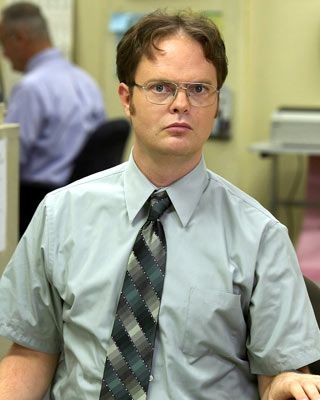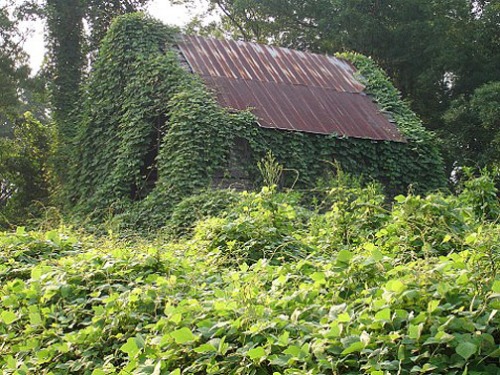
It’s not so much that Jesus is in a hurry; rather the boldness of each step is fueled by the inertia of the Word of God set loose in the world. John begins his gospel with some audacious claims about Jesus. “In the beginning was the Word, and the Word was with God, and the Word was God. And all things came into being through him, not some or just a few, any, every, and all things came into being through him.”
These claims would seem a bit ambitious atop a resume. Yet through these first couple of chapters Jesus moves with the power these bold statements proclaim. The Spirit descends on him from heaven like a dove. With just a short beckoning, “Come and See,” Jesus attracts disciples and crowds everywhere he goes. At the wedding at Cana, he turns water into wine. At the temple Jesus drives out the money changers, overturns their tables, and declares that if the temple were destroyed he could raise it up again in just three days. And then, last week it seems Jesus, like Chuck Norris, does not sleep, he sits awake in the night to welcome and engage Nicodemus. Again, at this point we are only three chapters into John’s gospel, and already it is quickly apparent Jesus has a serious aversion to both dilly and dally.
It is the force behind his steps thus far which make this morning’s gospel so striking. Jesus has stayed up all night with Nicodemus and then has to hit the road towards Galilee early in the morning. Somewhere along the way, next to an ancient well, hunger pains set in. Jesus sends the disciples out to scrounge for some food. But Jesus, the one who brings all things into being, surprisingly, does not go with them. Tired from their journey and for the first time in John’s gospel, Jesus sits down.
Certainly his need to rest is understandable, Jesus has done so much already. Over three weeks into our Lenten journeys, maybe we also feel the need to sit down for just a moment and catch our breath. Perhaps our Lenten disciplines have fallen to the wayside like well intentioned, but short lived New Year’s resolutions. But just because we need to sit down and catch our breath, and certainly just because Jesus sits down by the well, do not let us give up on our Lenten journeys just yet. As we will see, the Word of God, who moves with such audacity and power, takes even sitting down to the next level.
As Jesus was sitting by the well, collecting his breath, perhaps closing his eyes for a moment, a Samaritan woman approaches. Samaritans were considered a community outside of the righteous Judean community, who thought of themselves as the true keepers of the old time religion. As she approaches Jesus does the unthinkable, Jesus engages this woman at the well and asks her for a drink.
This well is not just any well, it is Jacob’s well. And while it was located in the Samaritan north, a place Jesus as a Jew would not be particularly welcome, the identity of the well itself points beyond this division between Jesus and the Samaritan woman. The well points back to one of the patriarchs of the faith, to the time before any such division existed between north and south, between Samaritan and Judean. The spirit of Jacob must have been floating around in its deep waters that day. Because as Jesus, sitting by its edge, engages our Samaritan woman an argument breaks out. Like Jacob’s encounter with the night visitor alongside of another body of living water, this encounter becomes a wrestling between the human and the divine.
Jesus says, “Give me a drink.”
And the woman responds, “Who are you, a Judean, to ask a drink of me, a Samaritan?”
Jesus quickly counters with, “If you knew the gift of God and if you knew who it is saying to you, “Give me a drink,’ you would have asked him for a drink, and he would have given you living water.”
Still somewhat less than amused, the Samaritan woman tries to get a grasp onto what exactly this Judean is up to, so she speaks with the kind of slow, deliberate pace known only by those who have worked at the retail customer service desk.
“Sir, you have no bucket, and the well is deep.” But she’s still intrigued by this idea of living water, in the same way that Dwight was intrigued by a small packet of magic legumes on this week’s episode of The Office. A small packet marked “Professor Copperfield’s Magic Legumes” lies alone on a table at a rummage sale. Dwight knows the beans can’t be magical, but he wants to believe that they just might be. Dwight is so intrigued he ends up trading his large, expensive telescope for the small packet of beans. And so the woman by the well extends a hopeful feeler, “Where do you get that living water?”
Jesus in his own patience responds, “Everyone who drinks of this water out of the well will be thirsty again. But those who drink of the water I will give them will never be thirsty. This water will become a spring gushing up to eternal life.”
While the woman’s interest grows, she still doesn’t get it, but she keeps grasping. “Sir, give me this water, so that I may never be thirsty or have to keep coming here to draw water.”
The Samaritan woman is unable to see outside of herself and her situation. What Jesus is describing lies outside of her imagination. Tired, worn down by the rigors of her life as an outsider of among outsiders, she wants only to put down her bucket and never have to return to this well again. But Jesus promises something bigger than this woman’s physical thirst. And just because we might be tired and need a moment to sit our buckets down, let us not give up on our Lenten journeys just yet.
Because Jesus and the woman continue to move forward together. Jesus reveals something about the woman to herself, about her lack of or excess of husbands. She calls him prophet, and again Jesus calls her further beyond the limits of her imagination. “The hour is coming when the Father will be worshiped not on this mountain or in the temple in Jerusalem, but in truth and in spirit.” And then like Dwight from the office stepping out on the limb and going after the magic legumes, the woman continues to wrestle in faith and lays out the most outlandish promise she can think of, “I know the Messiah is coming.” And Jesus affirms their back and forth, all of her questioning, and all of her hoping. “I am he,” he says, “the one speaking to you.”
And with that powerful proclamation the woman is off and running back into the city to tell everyone what she has seen, to proclaim the arrival of the awaited Messiah. Certainly her life is changed. She moves from calling Jesus; Judean, an insult, to sir to a prophet, and finally she breathlessly calls him Messiah as she runs back into town. But as she runs, filled with spirit and truth, a peculiar thing happens. She leaves her water jar lying on the ground next to the well. It was only a few moments ago when her highest hopes for Jesus was that he might unload her of the burden of having to come with her jar to this well each day, to lift this burden so that she could rest.
But Jesus promises and brings something that lies beyond her hopes, far greater than her need to come back to the well. In the end the transformative power of the Messiah brings her right back into the intricate details of her life. She leaves the bucket by the well and she’s going to have to come back to get it. Her whole life is baptized into, is covered by, these living waters. And the former chore of fetching water from the well everyday becomes a spirit filled discipline and proclamation of the Messiah’s power. Baptized into these living waters, she wants to come back to the well to see what this Messiah might do next. So, don’t give up on our Lenten journey just yet. Leave your bucket by the well in hope, and see what the Messiah is bringing into the world.
And the Messiah is bringing is life. Even when it seems we’re sitting still, God is moving ordinary water into living water. God transforms the stuff of our everyday lives into the stuff of God, and brings us into the intersection of the human and the holy. Our enemies, Samaritan or Jew, become our neighbors. The waters flowing out of our shower heads become the living water, the blue highways, of everlasting life. Our pedestrian activities and chores, even the park benches where we seek a moment of rest, become the places where the divine and the earthly intersect. The whole world, filled with these living waters, is the place where God makes the ordinary, the extraordinary.
So, while Jesus sits, let us not give up on our Lenten journey just yet.
For we hear proclaimed today that wherever and whenever Jesus abides or even sits is a place always filled with the possibilities of God’s transformative power. And the promise is that God is abiding, forcefully, in the waters of this well. So, don’t give up on our Lenten journey yet. Feel free to sit your water jars down next to this well in hope, because God will bring us back again and again. We sit our buckets down, to step out in hope, faith, and uncertainty because the fate of our journeys rests only on the one who turns well water into living water, the one who brings all things into being even while sitting down. Amen.







